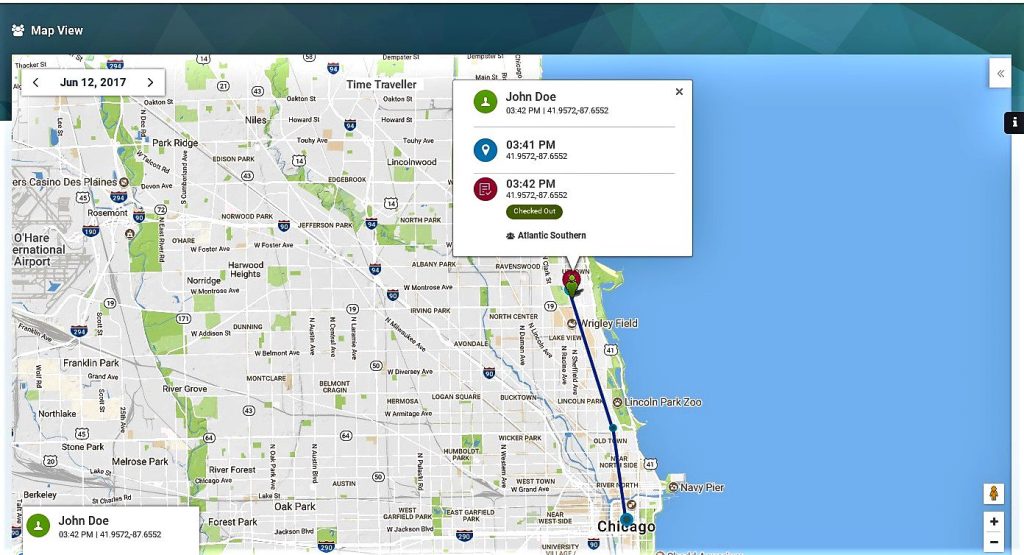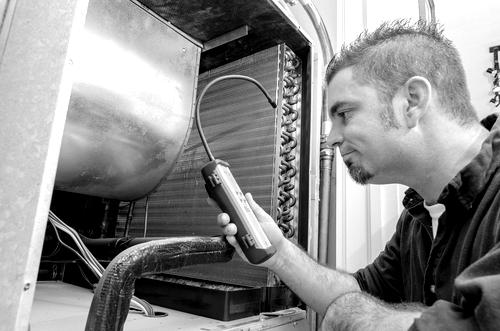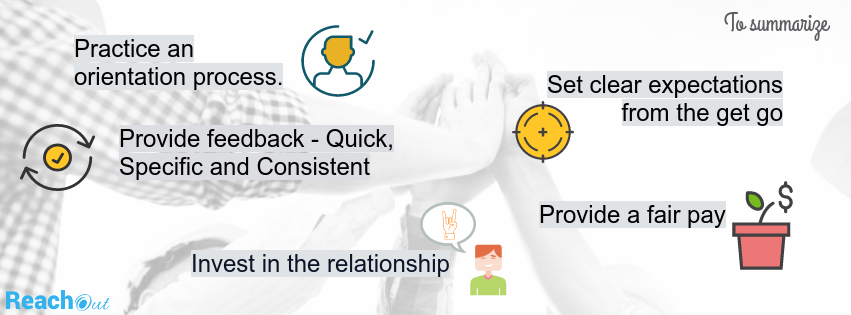Contractors or Independent workers are the lifeblood of trade services, across a wide range of industries – pest control, real estate, plumbing, quality assurance, automotive, manufacturing, electrical, appliance repair, retail, snow clearance, HVAC and many others. A lower CTB ( Cost to Business), increased flexibility in terms of expanding and reducing the workforce, and sometimes the need for special skill sets – have made this labor model popular. In fact, considering the increasingly complex and evolving socioeconomic landscape today, we believe that the proportion of contract workers (as compared to full time employees) will increase significantly over the coming years. Research by the folks at both McKinsey [1] and Deloitte [2], also draw similar conclusions.
In this context, the performance of your contract workers may well determine the success (or failure) of your business. Especially when your contract employees work at customer sites and interact extensively with clients. But contractors do not enjoy the same benefits, and often the same status, as your employees. So how can you motivate your contractors to ensure that they are productive and bring good value to your business? Here are a few basic principles and practices that you can apply today, to help your contract staff stay motivated and perform at peak levels.
1. Practice an orientation process
When a contractor starts working for you, most things about your company are new to him or her. Not aware of your philosophy and vision, this person is a stranger to your team and your customers. Starting a new job is uncomfortable. Learning new processes, meeting new people, adapting to a new culture – especially when the job or contract is temporary – is stressful. This can result in a greater time for the person to achieve full productivity. It can also lead to poor motivation, friction with team members, dropouts – all of these ultimately add up to your overhead costs. Worse, new contractors working on the front line have to deal with greater levels of stress, some of which they will pass on to customers. While this stress cannot be completely eliminated, much of it can be mitigated by practicing an orientation process.
A supervisor or a senior team member can walk him or her, through the company’s values, history and philosophy. While your newbie may not retain everything, the process will help nurture the feeling that he or she represents the firm.
The immediate supervisor can help explain items related to the project or activities – the timelines, the goals, the expected outcomes, the systems used and most importantly – how to represent the firm to customers. Since contractors may not always have the advantage of learning by working within the company office, this process can secure faster productivity.
Organize a casual get together with your team, so the person can get acquainted with his co-workers. Lunch, coffee, barbecue, beer, bowling – any setting where your team can relax, mingle and talk freely. After all, having a new person on board, is a good reason to celebrate.
Building a personal rapport and connection with colleagues and supervisors helps the new person feel a part of the team. This makes it easier to grasp the culture of the new workplace, especially the unwritten rules which are often more important than the ones in the employee handbook.
2. Set clear expectations
Too often we assume that the person we hire knows what’s expected of him or her. It is easier for employees to understand this since they are a part of the team, and have been with the organization for some time. But it is not easy for contractors to understand expectations immediately, since they move from one company to another. We recommend spending some time to explain what is expected from them. Set clear, deliberate expectations as early as possible about – quality of work, timeliness, communication and processes. Tell them about the outcomes you want to see them achieve, and how you will measure success. This could be done in an open two way discussion- your contractor may have good suggestions too. Back up your expectations with reasons, so that they know the impact their work will have on the business. Contractors who do not understand how their work contributes to larger organizational goals, are more likely to become disengaged.
Once you have agreed on expectations and outcomes, ask your contractor about how best he or she can achieve these. Ask them about the support they expect from you, to be able to successfully deliver the outcomes you desire. Brainstorm with them to find solutions, if needed. Identify consequences for success, and failure.
Clarity on expectations and outcomes is a win-win situation for both of you. It helps build a working relationship based on accountability and trust – critical to keeping motivation levels high.
3. Provide feedback – quick, specific and consistent
Given the short term nature of many contracts, we do not recommend conducting formal performance review meetings for contractors. However, feedback is important. It will help them perform better and deliver against the agreed outcomes. Today, most contractors are not getting sufficient feedback, due to the temporary nature of their engagement with various companies.
We recommend frequent check-ins in the early phases, where good questions, honest conversations and fair assessments can have a big impact. The extra time invested early on, when the contractor is more amenable to feedback, will make a significant difference in later stages.
Comments, critiques and praise are better understood when these are provided on the job, when the actions are fresh in memory. You can take a few minutes at the end of each job, to review what went well and what can be improved. Be specific and explain why you found something good or why you see the need for improvement. If you have set clear expectations, giving good facts based feedback is easy. Connect feedback with larger business goals whenever possible.
Praise in public, criticize in private. Praising the person publicly, for a job well done can boost morale, confidence and motivation. Generous praise of the contractor’s work through company wide mails, or during team meetings is a good acknowledgement, and also an indication to employees that good work is always recognized.
4. Invest in the relationship
Temporary staff – freelancers, contractors, interns – have a fundamentally different relationship with the establishments they work for, than employees do. They are often not as invested in the companies as employees are, and this can impact customer service, productivity and process improvements. Companies too, sometimes treat contractors as second class citizens. In a blended workforce, employees sometimes resent working with temporary staff. This affects morale, not just amongst contractors, but amongst all staff.
It is critical to invest in your company’s relationship with contractors. Like any other relationship, this one too is built on trust. While the other points discussed in this blog – orientation, feedback, expectation management and timely payments- will help build trust, there is more you can do. For starters, provide a company email address and include them in all company-wide emails. Include them in team meetings, and give them specific items to present at the meeting. Invite them to team lunches or for a casual evening out at the pub with team mates whenever possible.
With contractors who work away from the office, try to get some face time with them. If that’s not possible, on the phone or video calls, spend the first few minutes chewin’ the fat. Talk about family, last night’s big game, or weekend plans. Personal details help create empathy, essential to building trust. Encourage your employees to build camaraderie with the contractors, to make them feel a part of the organization.
If you hire contractors online, a contractor who has a good relationship with you will be willing to write good online reviews and provide good references for the firm. They are also more likely to work together with you again, reducing your ramp up overheads.
5. Provide a fair pay
Pay your contractors as you would your employees – based on the value they bring to your business. Skimp on a fair pay, and not only would you have an unmotivated person, you may develop a reputation and other contractors may hesitate to work with you.
It is a good practice to establish the payment terms in the initial stages of the contract. Start off with a well defined payment agreement – is the payment on a flat or hourly rate, payment breakups, what criteria triggers the payment. This can avert any confusion and tension, come payment time.
Many contractors are concerned when the payment date arrives as they know that they are not considered like the permanent staff of your firm. So it’s common that they are apprehensive about their payment. You can ease them out of some of this anxiety by being proactive and requesting for the invoice early. Even if your customer hasn’t paid you, pay the contractor the agreed amount, on time.
If you conduct trial periods – when you are testing the contractor to see if he or she is skilled and suited for the job. Pay for these tryout periods, because as far as the contractor is concerned, he is putting in his time and effort for it. This practice helps build a good reputation for your organization among the workforce.
Also, in some ways consider him like a regular employee. Every worker likes to have a competitive pay and perks. Give the contractor some extras for overtime and completing deadlines ahead of schedule. Come payment time, small surprises can help keep them happy and motivated.
Ultimately, it takes time and effort to keep your contract staff motivated. However, we believe the investment is well worth the pay off. Especially when contract staff work in customer facing roles. Thoughtful management of contract staff helps keep them motivated, securing that you get peak performance from them. They will want to work with you again. Treating them fairly and building a good relationship will boost your reputation in the employment market- good talent is hard to find, especially in a competitive labor market.
References:
[1] https://www.mckinsey.com/global-themes/employment-and-growth/independent-work-choice-necessity-and-the-gig-economy
[2] https://www2.deloitte.com/content/dam/Deloitte/global/Documents/HumanCapital/gx-dup-global-human-capital-trends-2016.pdf
Ashmitha Chatterjee
Ashmitha aspires to enhance the efficiency of service technicians. With a unique perspective on the challenges and opportunities within field service management, Ashmitha frequently shares her knowledge through industry blogs, articles and workshops.
More posts by Ashmitha Chatterjee




